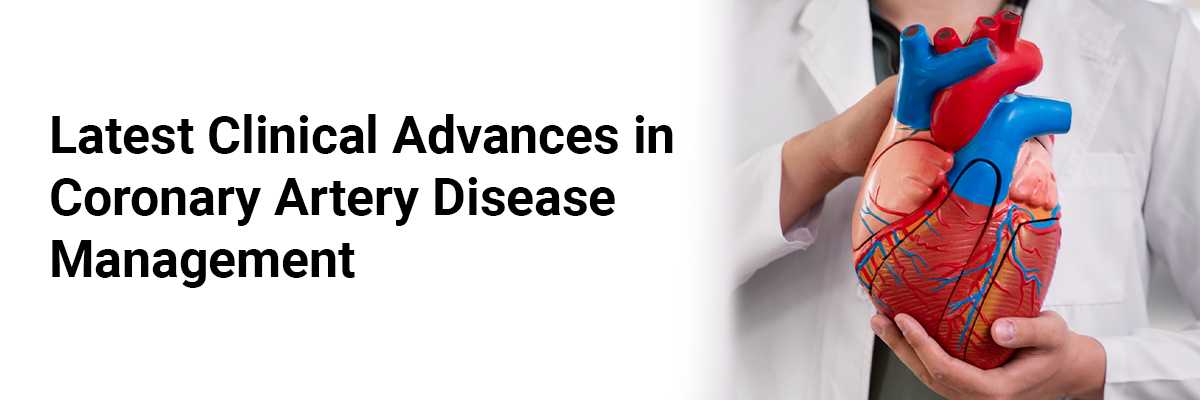
Latest Clinical Advances in Coronary Artery Disease Management
Coronary artery disease (CAD) continues to be the leading cause of death globally, despite remarkable advances in diagnostic techniques and therapeutic strategies. Acute coronary syndromes (ACS), including ST-segment elevation myocardial infarction (STEMI) and non-STEMI, require urgent intervention. In contrast, chronic coronary syndromes (CCS) demand a more nuanced approach grounded in individualized risk stratification and tailored treatment.
Recent evidence, published in the Journal of Clinical Medicine, supports the broader adoption of coronary computed tomography angiography (CCTA) for the non-invasive evaluation of suspected coronary artery disease (CAD).1 CCTA not only identifies obstructive lesions but also provides detailed insights into the characteristics of atherosclerotic plaques. When combined with fractional flow reserve derived from CT (FFR-CT), clinicians can determine the functional significance of coronary stenoses without invasive procedures, streamlining decision-making and minimizing risk exposure.
For patients with stable coronary artery disease (CAD), optimal medical therapy remains central to management, especially in the absence of significant ischemia. However, when revascularization is indicated, strategy selection must consider anatomical complexity and patient comorbidities. In ACS, timely percutaneous coronary intervention (PCI) improves outcomes and remains the gold standard for reperfusion. For multivessel disease, especially in diabetic patients, coronary artery bypass grafting (CABG) has demonstrated superior long-term benefits in several randomized trials.
Functional testing—including stress echocardiography, cardiac magnetic resonance imaging, and nuclear imaging—continues to play a critical role in diagnosis and treatment planning. Each modality offers unique strengths in terms of sensitivity, specificity, and prognostic value. Meanwhile, the integration of genetic risk profiling, inflammatory biomarkers, and advanced imaging enhances primary prevention strategies and identifies subclinical atherosclerosis.
The growing role of artificial intelligence and machine learning in cardiovascular care offers promise for earlier detection and more precise risk stratification. These technologies can synthesize complex datasets and uncover patterns that surpass human capabilities, supporting personalized treatment pathways and more efficient resource utilization.
Source: Bottardi A, Prado GFA, Lunardi M, Fezzi S, Pesarini G, Tavella D, et al. Clinical updates in coronary artery disease: A comprehensive review. J Clin Med. 2024;13(4600).













Please login to comment on this article